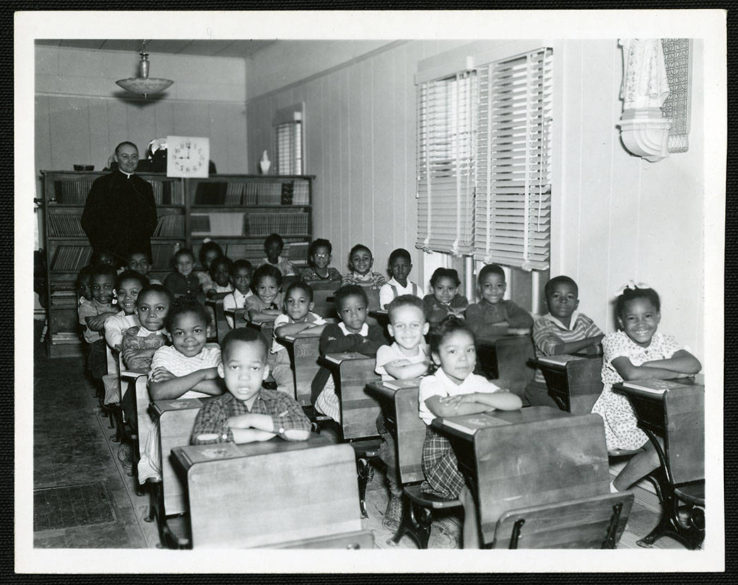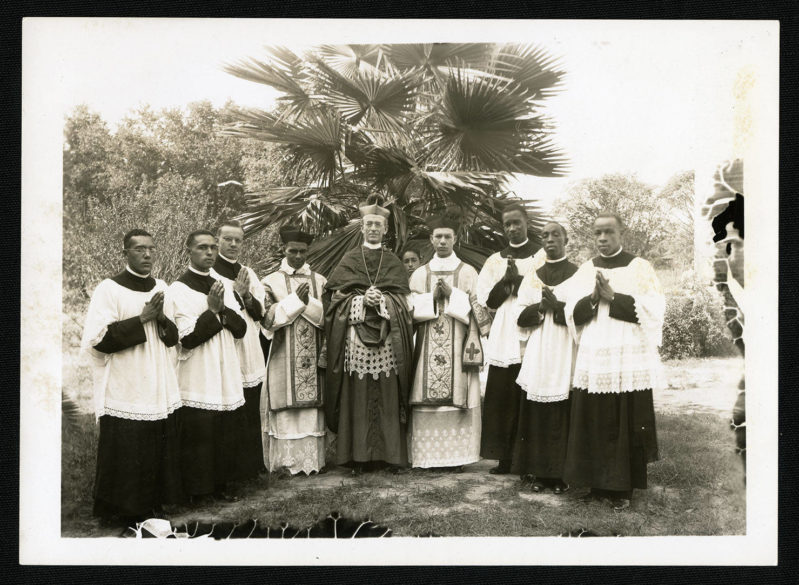By Mary Woodward
JACKSON – November is designated as Black Catholic History Month by the U. S. Bishops’ Conference. As Chancellor and Archivist for the Diocese of Jackson, I wanted to share some of the vast treasures the archives hold in regards to the development of the church in our state and the church’s role in race relations and seeking racial justice.
In November 2018, in addition to endorsing the cause for canonization for Servant of God Sister Thea Bowman, FSPA, the U.S. Bishops published the document Open Wide Our Hearts – The Enduring Call to Love: A Pastoral Response to Racism. This document is a Pastoral Letter from the full body of bishops to the lay faithful and all people of goodwill addressing the evil of racism.

The pastoral letter asks us to recall that we are all brothers and sisters, all equally made in the image of God. Because we all bear the image of God, racism is above all a moral and theological problem that manifests institutionally and systematically.
Only a deep individual conversion of heart, which then multiplies, will compel change and reform in our institutions and society. It is imperative to confront racism’s root causes and the injustice it produces. The love of God binds us together. This same love should overflow into our relationships with all people. The conversions needed to overcome racism require a deep encounter with the living God in the person of Christ who can heal all division.
Over the next few months, in conjunction with a diocesan effort to address racism led by Bishop Joseph Kopacz and the Office of Intercultural Ministry, our archives will be offering a series of articles highlighting particular moments, organizations and individuals that played a key role in shaping the diocese and Mississippi. Some of the material will inspire you and make you smile; other material may challenge you and make you uncomfortable. This is what opening the chapters and wounds of history does and if we do not study our history and be open to its contexts and settings, we will not be able to truly heal and move forward in a way that is just and honest.
One topic that many diocesan archives in the South are addressing are the sacramental records of slaves and how to preserve and present them for research. Our own archives have records from Spanish Colonial times in Natchez. The records are from 1789-1806 and hand-written in Spanish.
Felicite Giradeaux, the grand dame of Natchez and a free woman of color, will give us insight into Natchez Catholic life between 1802 and the establishment of the diocese in 1837. Our collection contains a hand-written interview with her by Bishop William Henry Elder, who is another story we will explore as he was our bishop during the Civil War.
Another topic will be education in the African American communities beginning with the first efforts at this in the basement of St. Mary Basilica in Natchez in the 1840s and growing into schools staffed by religious orders throughout the State. The diocese’s move toward integration of its own schools will be documented as well.
How to exist as a universal church in a segregated society is a fascinating topic that will lead us into the Civil Rights Movement and the church’s role in that here at what many consider “ground zero.” This was a very volatile time, and we will share some key moments of grace under fire from without and within.

And of course, we have Sister Thea, who challenged the whole church to honest dialogue about systemic racism in the church and the world. Her message is a guiding beacon for us as a church still today.
We have come a long way and we have built many bridges leading to healing. We have more to build. So, I invite you to be open to what is presented and embrace the opportunity to engage in this honest dialogue with others about race and how it affects our communities.
It is through the study of our history, our shared experience, and the understanding of our ancestors – warts and all – that we will be able to honor our Catholicity and truly by united in Christ as Christ intended. I hope you will find this series helpful and hopeful.
(Mary Woodward is the Chancellor and Archivist for the Diocese of Jackson.)
